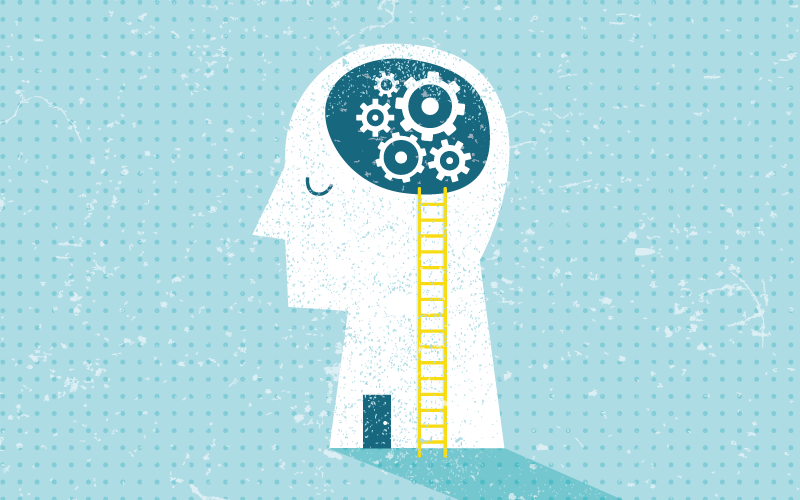It’s Not What You Think: Myths About ADHD
By Kathryn Stith, LMSW
Attention-Deficit/Hyperactivity Disorder (ADHD) is a popular topic happening everywhere from casual conversations in coffee shops to medical journals and social media. About 15.5 million American adults, which is over 6% of the population, have been diagnosed with ADHD. It’s likely that you know someone with ADHD.
You may have heard claims such as ADHD is “just for kids” or that “everyone has ADHD.” It’s important to understand that ADHD is more complex than just being forgetful or struggling to concentrate. There are things we know to be true and false about ADHD. Here are some of the most common ADHD myths:
Myth #1 - ADHD isn’t a real medical condition.
The DSM-5 (Diagnostic and Statistical Manual of Mental Health Disorders, Fifth Edition) defines ADHD as a neurodevelopmental disorder that involves inattention, hyperactivity, and impulsivity. People with ADHD struggle to focus their attention on one thing. Their minds and/or bodies are always active and they feel strong urges to do something right now. These are just some of the challenges people with ADHD can face. Anyone can feel distracted or restless sometimes. But for people with ADHD, these feelings are much stronger and more frequent making daily tasks and responsibilities difficult.
Myth #2 - ADHD is over diagnosed, and it’s because of COVID-19.
There has been an increase in ADHD diagnoses since 2020, but the reasons might surprise you. Life changes such as working or studying from home and having less structure have made us more aware of how we think and feel. Concerns about depression, anxiety, and stress grew. Because of greater awareness and reduced stigma about mental illness, more people sought mental health evaluations, leading to more ADHD diagnoses. ADHD is not a condition anyone “got”– it was there before the pandemic.
Myth #3 - People who have ADHD are lazy and just need to try harder.
Because of differences in the brain, people with ADHD process information differently. It’s not bad or worse, just different. People with ADHD might seem scattered because of inattention, hyperactivity, and/or impulsivity. They work hard daily to stay focused, organized, productive, and engaged despite these challenges. Sometimes people with ADHD experience hyperfocus, which is an intense level of concentration. The challenge is not a lack of motivation; it’s the difficulty in regulating their attention and sustaining effort.
Myth #4 - People with ADHD aren’t smart and don’t “have it together”.
ADHD is not a measure of intelligence and is not a limiting factor to accomplishing goals. People with ADHD are more successful in areas like creativity and problem-solving. You may not even know someone has ADHD. Some of the most successful people we know have ADHD - like Olympic gymnast Simone Biles, astronaut Scott Kelly, and entrepreneur Bill Gates. People with ADHD are diligent, dedicated, and highly resilient.
Myth #5 - Medications for ADHD are over-prescribed and are the “easy way out”.
Both stimulant and non-stimulant medications reduce ADHD symptoms. Medications can help regulate hyperactivity and impulsivity, but they don’t “fix” ADHD or make it an “easy way out.” Medication is just one form of treatment and as therapy is another. Therapy can help one develop executive functioning skills (our ability to complete goal-oriented tasks) along with coping strategies and communication techniques. Medications and therapy combined provides the person with the greatest chance of success.
So, what does this all mean? Imagine ADHD as a track race. Most people start at the starting line and race to the finish. But for people with ADHD, the starting line is further back or farther ahead making the race more challenging. Using therapy and medication is similar to going to track practice every day and having a skilled coach. People with ADHD can certainly improve their performance.
Many adults can successfully manage ADHD, but it is a lifelong condition. If you struggle with ADHD symptoms, clinicians at Behavioral Health Partners can provide assessment and treatment. Behavioral Health Partners is brought to you by Well-U, offering eligible individuals mental health services for stress, anxiety, depression, and ADHD. Call (585)276-6900 to schedule an intake appointment.
References
Adamis, D., Flynn, C., Wrigley, M., Gavin, B., & McNicholas, F. (2022). ADHD in Adults: A Systematic Review and Meta-Analysis of Prevalence Studies in Outpatient Psychiatric Clinics. Journal of Attention Disorders, 26(12), 1523-1534. https://doi.org/10.1177/10870547221085503
ADHD Embrace. (2024, September 18). Famous People with ADHD. ADHD Embrace. https://adhdembrace.org/famous-people-with-adhd/
American Psychiatric Association. (2013). Diagnostic and statistical manual of mental disorders (5th ed.). https://doi.org/10.1176/appi.books.9780890425596
Cleveland Clinic. (2022, October 6). ADHD Medication. Cleveland Clinic. https://my.clevelandclinic.org/health/treatments/11766-adhd-medication
Staley, Brooke S. et al. (October 10, 2024). Attention-Deficit/Hyperactivity Disorder Diagnosis, Treatment, and Telehealth Use in Adults — National Center for Health Statistics Rapid Surveys System, United States, October–November 2023. MMWR Morbidity and Mortality Weekly Report, 73(40), 890–895. https://doi.org/10.15585/mmwr.mm7340a1
Jim Riggs | 6/1/2025




